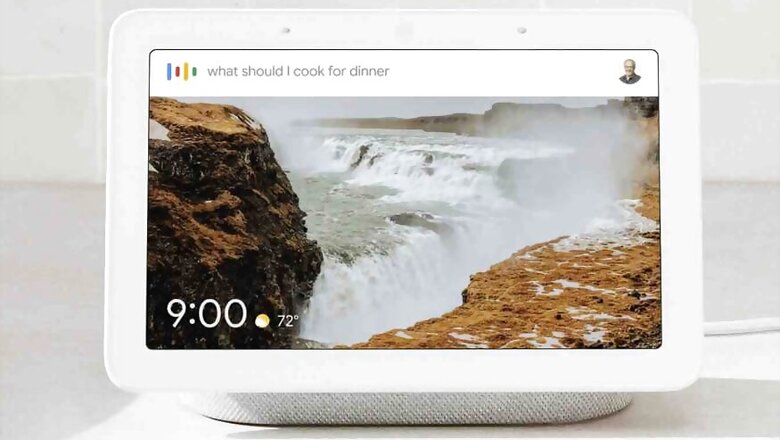
views
It was all a bit perplexing. On the one hand, Google made this whole argument about how they are adding new controls and features to ensure user privacy remains intact when using its services. And in general, about how it doesn’t want to know more about what it is that you do online. Incognito mode and Chrome cookies updates testify to that. Yet, at the same time, there was a stark contrast. The ‘next generation’ Google Assistant, Nest Hub Max and the Face Match feature, to be precise.
Let us start with Assistant first. The next generation Assistant will roll out on the new Pixel phones later this year, and it will be more than adequately capable of knowing pretty much everything about your life. People, places, important dates and what not. The way this will work is it will obviously learn about you the more you use it, but also gives you the option of serving it critical data on a silver platter. “For example, after you’ve told the Assistant which contact is “mom,” you’ll be able to ask for things more naturally like, “What’s the weather like at mom’s house this weekend?” or, “Remind me to order flowers a week before my sister’s birthday.” You always have control over your personal information, and can add, edit or remove details from the “You” tab in Assistant settings at any time,” is a scenario Google envisages.
While it will use the information from your calendar, map data and contacts for instance, you will be able to also add information such as important contacts, addresses and dates in an attempt to make Google Assistant better tuned for your typical usage scenario. You could simply want Google Assistant to pull out the route to your office or a friend’s home or even a hotel you are staying at, what are you eating, when did you last book a cab, when it is your wife’s birthday and what did you gift her the last time, where your parents live and Google Assistant will in a way know you better than you know yourself. And that is scary.
And it is scary even though Google stressed on the fact that we are now on the cusp on a breakthrough where using voice will prove to be quicker than manually using an app on your phone.
One thing that makes Assistant available all the time is the offline ability. That in itself is something Google has pushed across apps. Starting later this year, much of the artificial intelligence that is the foundation of Assistant will be run on smartphones themselves, which means the processing and response will be significantly quicker.
On the smart hubs, Assistant will deploy another one of its trump cards. It is called “Picks for you”. These are suggestions based on what Assistant has learnt about you in the past. “So if you’ve searched for Mediterranean recipes in the past, the Assistant may show you Mediterranean dishes when you ask for dinner recommendations. The Assistant also takes contextual cues, like the time of day, into account when you’re asking for help, giving you breakfast recipes in the morning and dinner at night,” believes Google.
Then there is the Google Nest Hub Max, which is the latest smart display device to arrive on the scene and compete with the likes of Amazon Echo Show and the Facebook Portal, for instance. The solid specifications aside, what caught our attention was the Face Match feature. So, the Nest Hub Max is sitting pretty in your living room or your bedroom. You walk in, and the front facing camera on this smart display recognizes your presence and matches your face with the data it has. Once it confirms it is you, it’ll invite you to simply tap on the display to get personalized information for you—calendar, reminder, new messages and more. Google says Face Match can be configured for up to six family members.
Google has stressed on the fact that all the processing is being done on the smart display itself, with the facial recognition data not being shared on Google’s servers. This is an upgrade over the “voice match” feature which already exists on the Google Home smart speakers.
Then there is the small issue of the Nest front facing camera on this smart display. When you are on a video chat (perhaps using Google’s own Duo app), the camera will home in on you and follow you around if you are moving around the room. We have already seen this on the Facebook Portal and Facebook Portal+ smart displays.
Though you can disable the Nest Hub Max’s camera and microphone, it doesn’t really do enough to apply a soothing balm on the furrowed brow as you wonder how much the Google services and indeed any social media network or online service may already know about you. And if you think things are already getting out of hand, the future starting later this year, will probably be scarier.




















Comments
0 comment